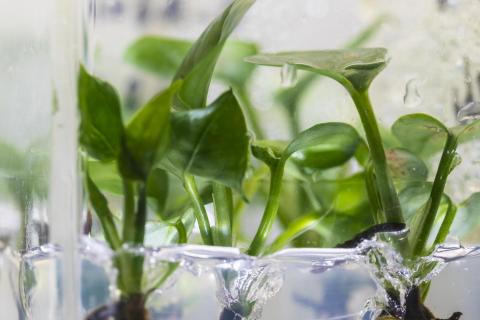Plants may not be out of it in the future, though. A new genetically modified common houseplant, pothos ivy (Epipremnum aureum), can even remove small molecules HEPA filters miss, like chloroform and benzene. You probably don't need to worry about those, though they have been linked to cancer, unless you live in a house with a chlorinated pool in your bedroom or a living room full of lawnmowers. It's proof of concept that a genetically engineered plant can do more than feed billions.

Pothos ivy. Credit: Mark Stone, University of Washington
The modified plants express a protein called cytochrome P450 2E1, which is found in high levels in our livers, to do for household air what our biology does inside our bodies: Filter out stuff that is natural or harmless at trace levels but can be toxic in high quantities. Like chloroform or alcohol or benzene.
The researchers created a synthetic version of the gene that leads to the rabbit form of 2E1 and then modified the pothos ivy with it. In closed experiments with unrealistically high levels, the concentration of chloroform in the tube with the generically engineered plant dropped 82 percent after three days and was essentially gone after six. With benzene, after day eight the concentration had dropped by almost 75 percent. Those rates are comparable to commercial home particulate filters, except because they are for small molecules they trap things many filters cannot.




Comments